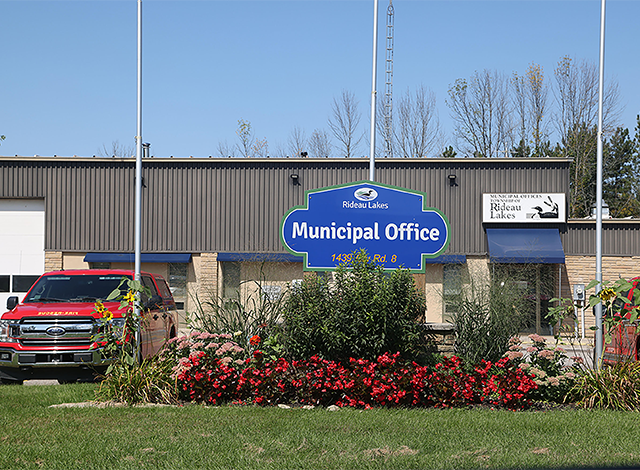LAURIE WEIR
A cat rescue in Rideau Lakes Township is under investigation by the provincial animal welfare agency and the Ontario Provincial Police.
Bill Dickson, media relations coordinator with the Ontario Provincial Police East Region, confirmed that police opened an investigation into allegations of abuse and neglect of cats in the care of Eastern Ontario Cats on Oct. 18.
“This remains an ongoing investigation,” Dickson said in early November. “There have been no charges laid.”
Eastern Ontario Cats is a registered charity owned and operated by Johanna Cake. Cake was contacted by this newspaper via email, and she indicated she would be available for a phone call a few days later; however, she did not call. In a direct message to this newspaper on social media, she said she wanted to “get our side of the story out” about the situation, which CTV News first reported in October, alleging forged veterinary documents, sick cats being adopted out, and funds that had reportedly gone missing.
Brent Ross, a spokesperson for the Ministry of the Attorney General, which oversees the Provincial Animal Welfare Services (PAWS), said there is an active investigation but declined to comment further.
“It should be noted that in the case of stray animals, municipalities are responsible for local animal control, and any call related to these types of animals would be referred to that authority,” Ross stated in an email. “We recommend contacting the local animal control office for advice on handling stray animals, as each municipality has its own bylaws, policies and procedures.”
Ross added that AWS inspectors work with local police, veterinarians, livestock organizations, and humane societies to protect animals from harm.
“Abuse and neglect of any animal is not tolerated in Ontario. If you think an animal is in distress or is being abused, call 1-833-9-ANIMAL (264625),” he wrote. “When an AWS inspector responds to a call, they take steps to educate animal owners on care standards. The PAWS Act sets mandatory standards of care to ensure animals are treated humanely and receive appropriate care.”
When contacted, Shellee Fournier, chief administrative officer of the Township of Rideau Lakes, said she was unaware of the situation in Elgin but noted that the humane society was aware and would follow up. Fournier said she first learned of the situation through an Ottawa news station.
“Historically, it is my understanding that council has only addressed dogs via licensing,” she said.
Jackie Gauthier is a co-founder with Sandi Lawson of Speak up for Paws. This is a non-profit organization focused on animal health and safety advocacy, has rescued cats from the Elgin house. Gauthier said some of the cats removed from the property have tested positive for panleukopenia—a highly contagious disease known as feline distemper that affects kittens and unvaccinated cats—and for internal parasites such as coccidia.
“The presence of panleukopenia in a crowded environment like this poses a serious risk to other cats,” she explained. “The virus is highly transmissible and can survive on surfaces for months, so humans and volunteers handling infected cats could unintentionally carry it to other locations, where unvaccinated cats could then be exposed.”
According to the Canadian Veterinary Medical Association and Cornell University College of Veterinary Medicine, thorough disinfection and hygiene practices, such as handwashing and changing clothes, are essential to reducing the spread of the virus.
Gauthier, who has previously rescued cats from hoarding situations in the Ottawa area while wearing a hazmat suit, said she has a network of local rescues and volunteers who work alongside her. She noted that volunteers with the Elgin rescue were “at their wits’ end” and unsure how to proceed. One volunteer made a complaint to PAWS in September.
“I was getting whispers from people looking for advice,” Gauthier said. “I try not to get involved unless I see some sort of neglect.”
Gauthier said she hopes the rescued cats and kittens will receive the care they need but acknowledged that a significant amount of work remains.
In January, Eastern Ontario Cats helped rescue 67 neglected cats from a hoarding situation in Bourget, Ont., and began fundraising for their veterinary care. At the time, Cake’s rescue was listed as a no-kill, 100 percent foster-based shelter with 170 cats in foster care. Within its first year, the organization had adopted out 500 cats and kittens and supported the trap-neuter-return process for another 150 cats. The website has since been removed, but her Facebook page remains active.
Penalties for Animal Abuse in Ontario
According to the Ministry of the Attorney General, Ontario has the strictest provincial penalties in Canada for animal abuse and neglect. The Provincial Animal Welfare Services Act covers offences including:
- Causing or permitting distress to an animal
- Causing harm or attempting to harm a law enforcement or service animal
- Promoting, arranging, or financially benefiting from animal fighting events
- Training animals to fight other animals
- Owning or possessing equipment or structures used in animal fighting
- Failing to follow any applicable standards of care
- Obstructing an inspector or agent
Violations of these laws can result in severe penalties:
- Up to two years in jail
- Fines up to $130,000 for an individual on a first offence, or up to $500,000 for a corporation on a first offence
- A lifetime ban on animal ownership
- Other penalties
Individuals may also face animal cruelty charges under the Criminal Code.



















